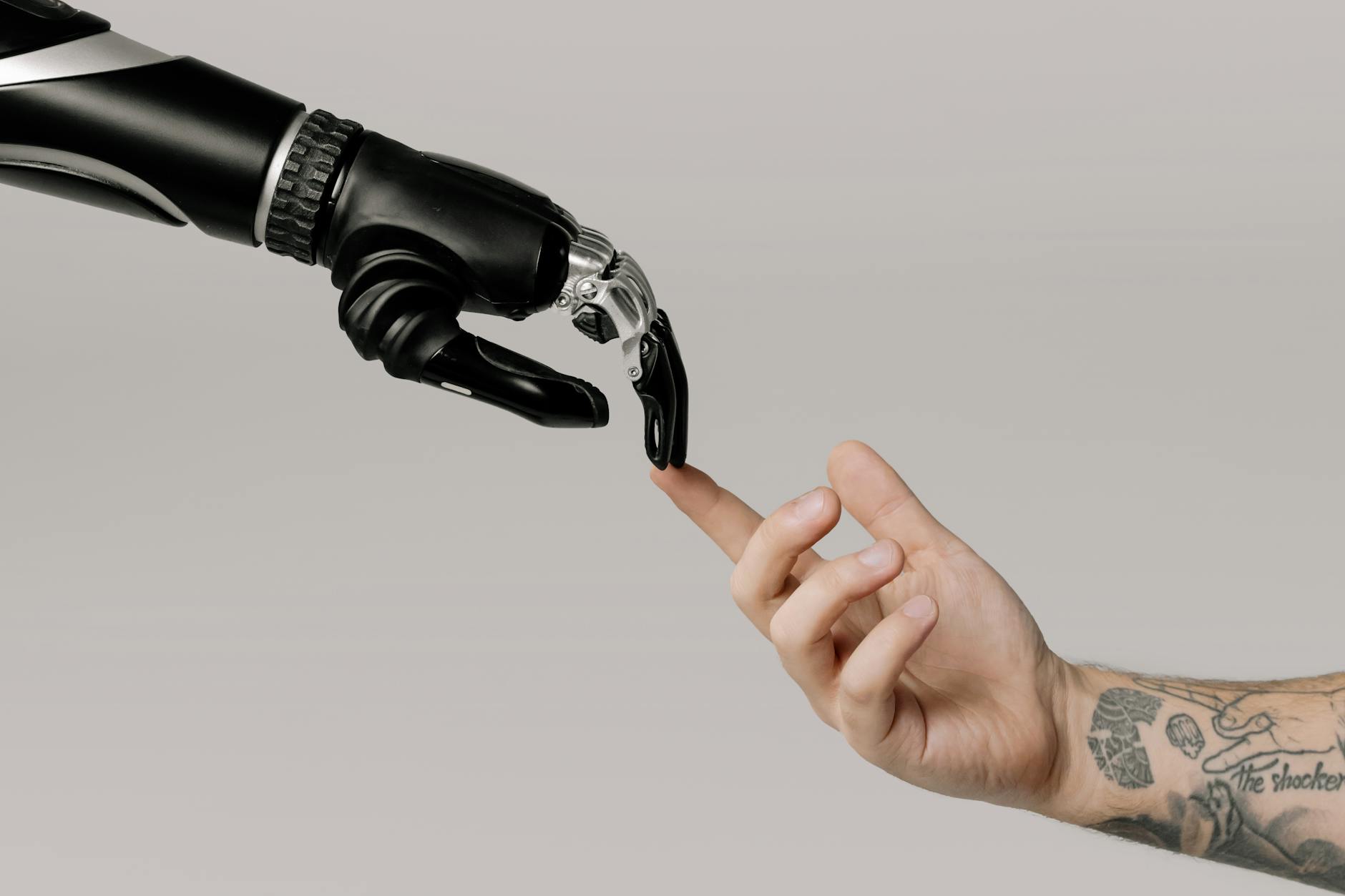Most of the significant shifts in history in the field of technology beginning with the industrial revolution, the rise of the internet, or the digital revolution, were always preceded by periods of disruption and instability. With its speed and scope of impact, the evolution of Artificial Intelligence (AI) in the past few years has become the latest addition to the list of disruptive technologies with transformative abilities.
Deepak Chopra, the Indian born American author, stated that “All great changes are preceded by chaos”. For many professionals working in the IT industry, the rapid evolution of AI has ushered in a new era of innovation, while for many others, it is creating the fear of instability (read job displacements) by automating most of the routine tasks.
Artificial Intelligence (AI) is no longer a futuristic concept; it’s a current force that is fundamentally reshaping the IT industry. As we progress into a digital-first world, reimagining AI’s role is not just about automation or efficiency anymore — it’s about redefining how value is created, delivered, and sustained across the IT ecosystem.
Here are some of the areas where AI has evolved as a strategic partner in business and technology transformation.
Automation to augmentation
AI in the IT industry has been traditionally leveraged for automating repetitive and rule-based tasks like data entry, ticket routing, log analysis, system monitoring or routine testing. AI now plays a much more dynamic role in augmenting human intelligence, enabling IT professionals to collaborate with machines to deliver faster and higher quality outcomes at scale. Through advancements like AI-powered co-pilots (e.g., GitHub) for code generation, intelligent process automation like customer service chatbots, and predictive analytics for system performance and failures-IT professionals can now focus on innovation and customer experience.
Strategic partner in software development
Artificial Intelligence is swiftly evolving from a supportive tool to a strategic partner in software development, transforming how applications are designed, built, tested, and maintained. AI helps translate business requirements into functional code, recommend optimal architectures, and even suggest performance optimizations based on real-time usage data. It also enhances collaboration between cross-functional teams by automating documentation, tracking code dependencies, and streamlining version control. Thus, AI not only boosts productivity but also enables organizations to innovate faster, respond to market needs quickly, and deliver more intelligent, scalable, and secure software solutions.
Enabling hyper-automation
Hyper automation is a business-driven strategy that aims to automate as many business and IT processes in an enterprise by leveraging multiple technologies like AI, ML, and RPA across complex workflows and decision-making chains. AI enables bots to not only execute tasks but also understand context, predict outcomes, and continuously improve processes through data-driven insights. In simple terms, this would mean that systems can self-monitor, self-heal, and dynamically adapt to changing conditions without human intervention. From automated service desk operations to seamless back-office workflows, AI-powered hyper automation enhances efficiency, reduces operational costs, and improves agility. This, in turn, enables businesses to scale faster and respond to market demands with greater speed and precision.
Cybersecurity & risk intelligence
AI is revolutionizing cybersecurity and risk intelligence by enabling faster, smarter, and proactive threat detection and response. It enhances defense capabilities by continuously analyzing vast volumes of data to identify anomalies, vulnerabilities, and predict potential breaches before they occur. In the IT/ITES industry, AI-driven security operations centres (SOCs) and intelligent risk engines help automate incident response, prioritize critical alerts, and provide actionable insights for risk mitigation. By transforming cybersecurity from a reactive to a predictive function, AI not only strengthens organizational resilience but also helps in building a robust framework for digital trust and compliance in an ever-evolving threat landscape.
Ethical & responsible AI in IT
As AI continues to transform the IT industry, it is imperative that we adopt ethical and responsible practices which go beyond legal and regulatory requirements. Responsible AI goes beyond performance—it demands that systems are designed with fairness, transparency, and accountability at their core. This includes ensuring that AI models are free from harmful bias, respect user privacy, and operate in ways that are explainable to stakeholders. Organizations are increasingly implementing AI governance frameworks to oversee how AI models are developed, tested, and deployed, with emphasis on diverse data sets, audit trails, and stakeholder oversight.
IT organizations are now also leveraging explainability tools that help decide how AI algorithms arrive at decisions, making it easier for developers, auditors, and end-users to understand and trust these systems. Additionally, organizations are now using bias detection tools (e.g., to weed out unfair outcomes for representative groups), and mitigation frameworks are being integrated into AI pipelines to identify and correct imbalances in training data or model behaviour. Ethical AI is not just a best practice—it’s a strategic necessity for inclusive, transparent, and accountable digital transformation.
Conclusion
As we reimagine the role of AI in the IT industry, it becomes clear that AI is no longer just a tool that enables it, but more a co-architect of the digital future. AI is reshaping the very foundation of how IT services are designed, delivered, and scaled. Its ability to augment human intelligence, discover insights, and adapt in real time enables organizations to be more agile, resilient, and future-ready.
As Fei Fei-Li, a Stanford AI Professor and co-director of the Stanford Human-Centred AI Institute remarked, “AI is not a threat. It’s a tool—one that can help humanity solve some of its biggest challenges.” By embracing AI not just as a technology, but as a strategic and ethical partner, the IT industry can unlock unparalleled value in shaping a smarter, and more equitable digital world.





Leave a Reply